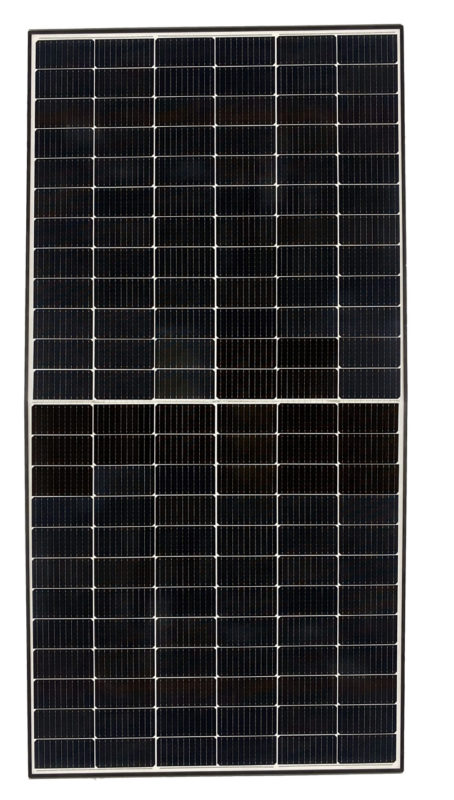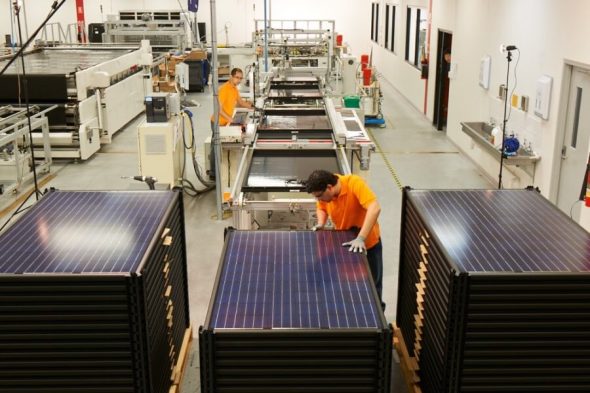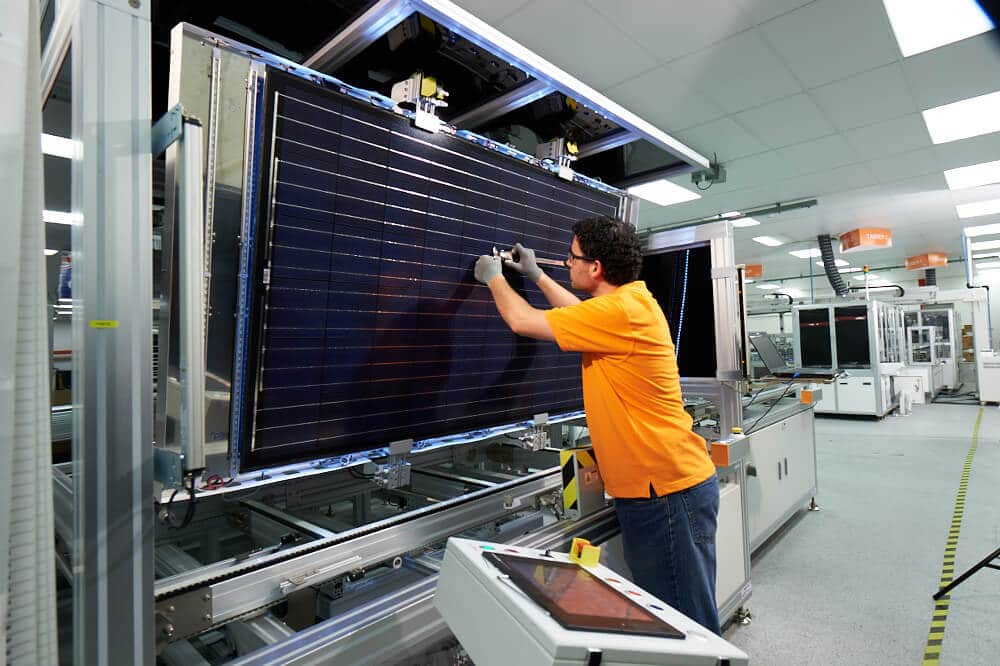Adelaide-based Tindo Solar has today launched its first panel aimed at the utility-scale segment. Ahead of its product listing with the Clean Energy Council, the 545W Karra module was evaluated by TUV SUD Korea which found the panel actually generated 5 watts more than its rating.
Specifically, the engineers at TUV found Tindo’s utility-scale panel produced 549W of power at around 21% module efficiency and 23.1% cell efficiency, recording a 0.07% cell-to-module (CTM) loss.
The industry average energy efficiency of a solar module is between 17 and 19%, and the average CTM loss is 2-3%, Tindo noted.
The testing, Tindo said, found its 545W Karra module “one of the most efficient panels available in the world.”

The 545W panel is considerably larger than Tindo’s largest residential rooftop module, the 410W Karra, and is specifically designed to be used in utility-scale arrays, either on a rooftop or ground-mounted applications. It is 2283mm x 1149mm in size, weighs 29kg and includes a 25-year limited product warranty.
The 545W Karra panel will be available in commercial qualities from March 2022.
Utility-scale hole in the market
The panel was designed to coincide with its new production line in South Australia that uses the latest global standard for solar cells, the M10, Tindo said.
“Over the next decade there will be a steeper increase in demand for panels in large-scale projects than from our core market of rooftop retail and commercial,” Tindo Solar Chief Executive Officer, Shayne Jaenisch, said.
Jaenisch added the typical utility-scale panel used in Australia is imported and doesn’t require a Clean Energy Council (CEC) listing. Jaenisch said there was strong interest in Australia-made panels built for utility applications, which reflected concerns about performance but was also linked to waste going to landfill and forced labour in foreign supply chains.
“Many corporate owners of solar projects have internal policies about forced labour and they want some assurance about their supply chains,” Jaenisch said. “Our cells do not come from Uyghur Province and our suppliers were not named in the damming report on forced labour, In Broad Daylight. The modules are made at Mawson Lakes and we have an open-door policy – customers and regulators can come down and watch the panels being made.”

Tindo Solar
“Owners of solar projects want a high-quality Australia-made option, and we now have a market-leading product we can sell them, made right here in Adelaide.”
Jaenisch said disused panels going to landfill is also against many organisations’ sustainability policies, which could be partly addressed with quality modules. “Large solar arrays use hundreds – even thousands – of panels, which don’t have to be registered with the CEC. They are low-cost and low-quality and they have a typical life of less than seven years. We’ve built a utility-scale panel to last 25 years and it will be listed by the CEC. We believe our approach aligns much better with sustainability policies and the broader goals of renewable energy.”
Tindo Solar has a program to repurpose its second-hand panels for social and environmental initiatives, and last year formed a partnership with Adelaide-based Reclaim PV, which can recycle 98% of a solar panel.
This content is protected by copyright and may not be reused. If you want to cooperate with us and would like to reuse some of our content, please contact: editors@pv-magazine.com.









3 comments
By submitting this form you agree to pv magazine using your data for the purposes of publishing your comment.
Your personal data will only be disclosed or otherwise transmitted to third parties for the purposes of spam filtering or if this is necessary for technical maintenance of the website. Any other transfer to third parties will not take place unless this is justified on the basis of applicable data protection regulations or if pv magazine is legally obliged to do so.
You may revoke this consent at any time with effect for the future, in which case your personal data will be deleted immediately. Otherwise, your data will be deleted if pv magazine has processed your request or the purpose of data storage is fulfilled.
Further information on data privacy can be found in our Data Protection Policy.